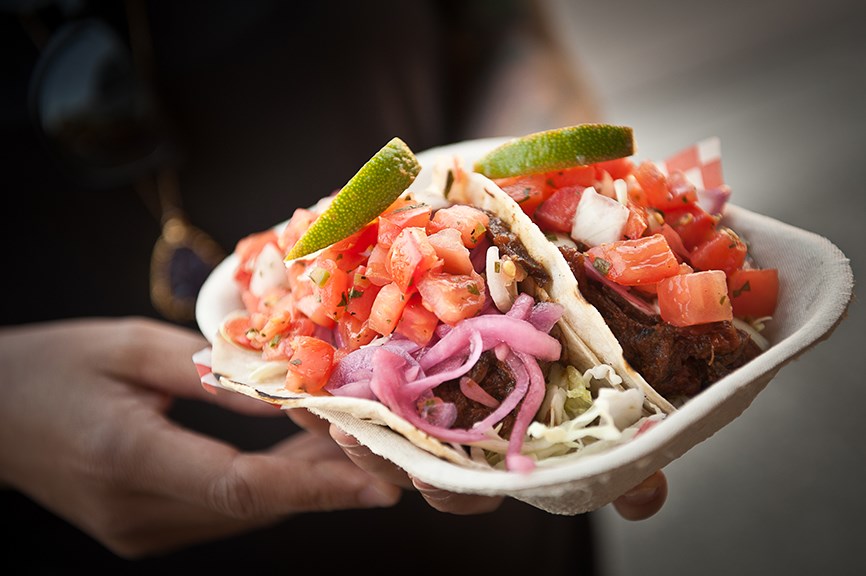Vancouver is one of North America’s strongest food cart cities, and it takes the lead in Canada with over 100 mobile eateries. But while there is an advantage to being on the West Coast, where weather is moderate, it’s still a struggle to stay open year round, and many can’t afford to do it.
Just like our summer, food carts come and go, and many of the operators I’ve talked to (at least 40) pray to make it another year. Some even work a couple of jobs to sustain their food cart business.
It’s a labour of love and customers don’t always see the “behind the scenes” or have sympathy for it. Well, enough sympathy to want to pay more for it... In fact, price often comes up when discussing Vancouver’s street food scene. Relative to other North American food truck cities, like Portland or Austin, which are casual, Vancouver’s food truck scene is posh – with prices to match.
Realistically, most food truck meals end up in the $10-$15 range, but the “sweet-spot” for most people is usually $8-8.50 for a quick and casual lunch. For $10 or more, you could have paid the same amount and gotten a chair and a table at a restaurant. And if you're not paying for ambience or service, it can leave you with high expectations. Why is it so expensive?
Because, operating a mobile food business is expensive. While a food truck experience is not a restaurant experience, it's comparable to opening a restaurant if scaled equally, and someone has to pay for that cost, which ends up being the customer. Plus, Vancouver customers want biodegradable containers, local ingredients, high quality food, and good portions, but at "cheap food" prices.
Also, when thinking about price, people tend to use cities renowned for street food as a benchmark. It’s an unfair comparison, though, because these are often in underdeveloped regions, such as in South East Asia, where labour and food costs are a fraction of what they are in Vancouver.
Many food trucks are actually meeting the above criteria (and more or less need to if they want a good chance at getting a permit), but the value isn’t registering with customers. If it was, there would be no complaints; no one would question paying restaurant prices at a food cart, and there wouldn’t be as much turnover as result.
On the positive side, while Vancouver’s street food culture may not be the most affordable, it is eclectic and sustainable, a way for “hobby chefs” to get into the business or eventually open a restaurant, and a healthy alternative to fast-food.
Since Vancouver doesn’t have a lengthy history of street food (outside of hot dogs) there has also been the opportunity to define it over the last few years.
From less than a handful of hot dog stands to a plethora of diverse and socially responsible food trucks, it is something to be proud of. And to appreciate Vancouver’s street food scene is to see the value in opportunity and options rather than dollars.
Find Mijune previewing Chez Christophe’s summer desserts on July 16, previewing the new Chambar space on July 18, and filming at Vancouver’s Food Cart Festival on July 20 with Novus TV. Learn more about Mijune at FollowMeFoodie.com or follow her on Twitter and Instagram @followmefoodie.



